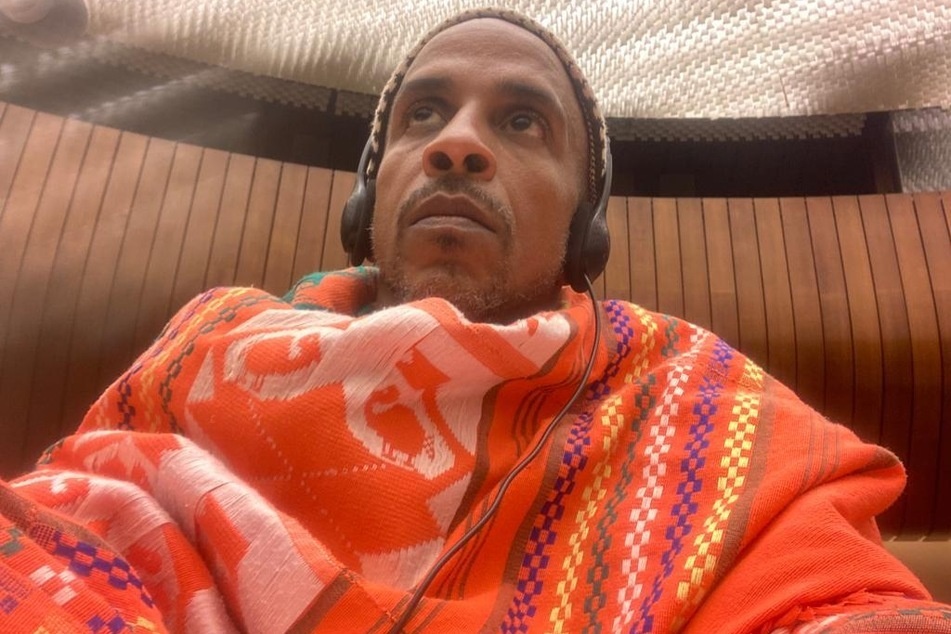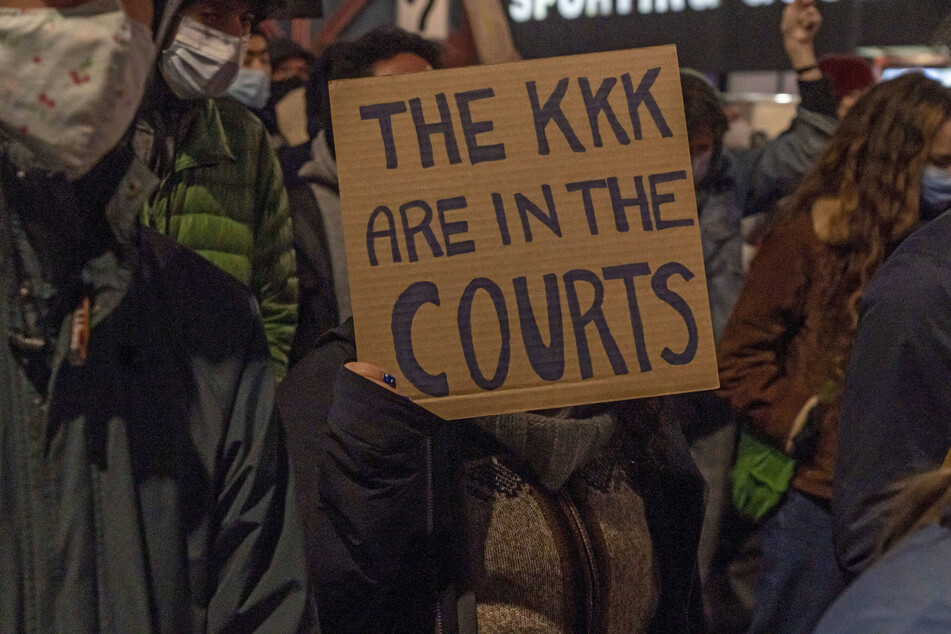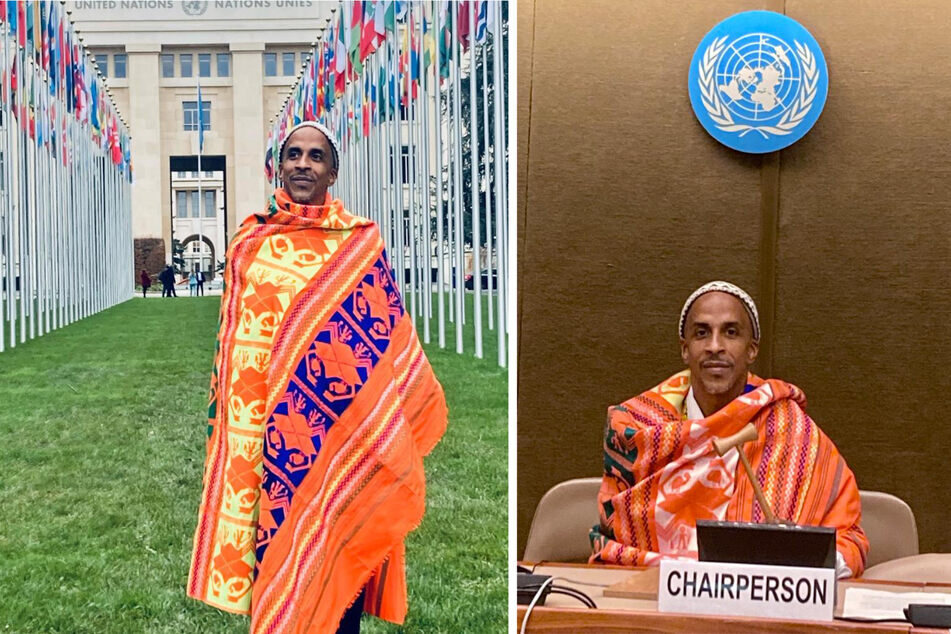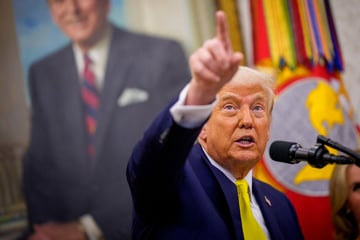Siphiwe Baleka's landmark petition seeking reparations for US ethnocide dismissed
Bissau, Guinea-Bissau - Celebrated athlete and activist Siphiwe Baleka's historic reparations case has been dismissed by the Inter-American Commission on Human Rights (IACHR) without explanation.

In January, Baleka filed a groundbreaking case before the IACHR seeking redress for human rights violations perpetrated against him by the US. Baleka's petition, which combined genealogical findings with the latest in epigenetic research, accused the US government of state-sanctioned ethnocide, referring to the deliberate and systematic destruction of cultures.
A dual citizen of the US and Guinea-Bissau, Baleka traced a direct line between the trafficking and enslavement of his Balanta ancestor, Brassa Nchabra, prior to the American Revolution and the 2020 police shooting of his cousin, Jacob Blake, in Kenosha, Wisconsin.
Hoping to set a precedent for other African Americans to follow, the Balanta B’urassa History and Genealogy Society in America founder was seeking not only financial compensation for the damage done to his family, but also the transfer of at least 80 acres of land due to his ancestors Jack and Yancey Blake following Emancipation. He further called on the US to facilitate his family's repatriation efforts by redirecting resources to Guinea-Bissau for the damages wrought through colonialism.
The first-of-its-kind petition came amid a growing public acknowledgement of the need to reckon with the legacy of enslavement.
Nevertheless, Baleka got an email last week that his filing had received a "decision to not open for processing" – with no further explanation from the IACHR.
"Honestly, when I got this that it wasn't accepted, I was disappointed," Baleka told TAG24 NEWS. "I can't say that I was extremely disappointed or surprised because everywhere we look – it doesn't matter if it's a local municipal court, a state court, a national or domestic court, a regional court, or an international court – not only are they dismissing us, but they aren't even hearing the cases."
"In the field of jurisprudence, there is an unwillingness to act ethically and morally," he added.
A pattern of dismissal

While there has been some progress in the legislative realm, seeking reparations for the crimes of enslavement and ethnocide through the courts continues to see roadblock after roadblock, Baleka said.
The French Supreme Court rejected a request for reparations for the descendants of Black people enslaved in Martinique just one week before Baleka received the bad news about his own case. Two days later, a Tulsa judge dismissed a historic lawsuit demanding redress for the three living survivors of the 1921 Tulsa Race Massacre.
The inability to get a hearing in reparations cases has left many Black people feeling like there is nowhere left to turn in the fight for justice long withheld.
"What happens when I have exhausted every single jurisdiction?" Baleka asked. "There is no interplanetary, galactic court that I can go to and say, 'Hey look, the international justice system of planet Earth isn't providing justice, so now I need to appeal to universal alien forces.'"
"The only forum open to me was this Inter-American Commission on Human Rights, and now I see they don't respect me. I can't get justice there, so what am I supposed to do as a human being educated about my rights and how they've been violated for eight generations of my family?"
Meanwhile, Rusten Sheskey, the white Kenosha police officer who shot Baleka's cousin seven times in the back, walks free.
Moving forward in spite of legal defeats

The latest blow has left Baleka feeling that he has very few options left.
There are ongoing collective efforts at the International Court of Justice, through the United Nations Permanent Forum on People of African Descent. He is also weighing the possibility of filing his individual case through the African Court on Human and Peoples' Rights.
But Baleka also insists that international law and treaties guarantee the right to armed struggle if all other efforts to secure freedom from colonial oppression fail. Continued rejections, he warned, may leave him with little choice other than to take justice into his own hands.
"I want my day in court, and if you don't give it to me, you are literally forcing and pushing me to become a freedom fighter, which we understand from your definition, you're going to call me a 'terrorist,'" he said of the US government and other Western institutions.
"History shows that eventually people will die to preserve their dignity and obtain their freedom and liberation and independence. It is born within us," he added.
Whatever happens, Baleka has no plan to give up his fight for reparations in his lifetime.
"I'm no longer that little boy who grew up in a cornfield in the boondocks of Illinois," Baleka said. "I am a Black man, an African, who is unafraid to join my ancestors as a hero."
The Inter-American Commission on Human Rights has not responded to TAG24's request for comment.
Cover photo: Courtesy of Siphiwe Baleka

